Results
-
£34.95
Tucker (Cornet Solo with Brass Band - Score and Parts) - Leidzen, Erik
Originally published in the Festival Series in 1933 and written by the master of solo writing, Erik Leidzen, this has become, in Salvation Army circles, a 'standard' for all aspiring cornetists, exploring the full range of the instrument from bottom F# to top D.
Estimated dispatch 7-14 working days
-
£17.50
Tucker (Cornet Solo with Brass Band - Score only) - Leidzen, Erik
Originally published in the Festival Series in 1933 and written by the master of solo writing, Erik Leidzen, this has become, in Salvation Army circles, a 'standard' for all aspiring cornetists, exploring the full range of the instrument from bottom F# to top D.
Estimated dispatch 7-14 working days
-
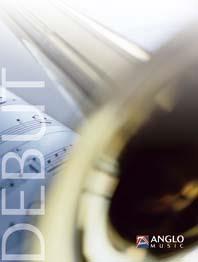 £57.50
£57.50A Repton Fantasy (Cornet Solo with Brass Band - Score and Parts) - Parry, Hubert C. - Sparke, Philip
Sir Hubert Parry (1848-1918) is mostly remembered for the marvellous melodies of his hymn tunes, such as Jerusalem and Repton. The latter first appeared in Parry's oratorio Judith and was adapted as a hymn tune after the composer's death. This fantastic cornet solo will give your section leader a real chance to shine.Duration: 3:30
Estimated dispatch 7-14 working days
-
 £57.50
£57.50Lairg Muir (Cornet Solo with Brass Band - Score and Parts) - Sparke, Philip
Laig Muir is close to the village of Lairg on Loch Shin and is surrounded by heather moss. A beautiful solo for your cornet player.Duration: 4:30
Estimated dispatch 7-14 working days
-
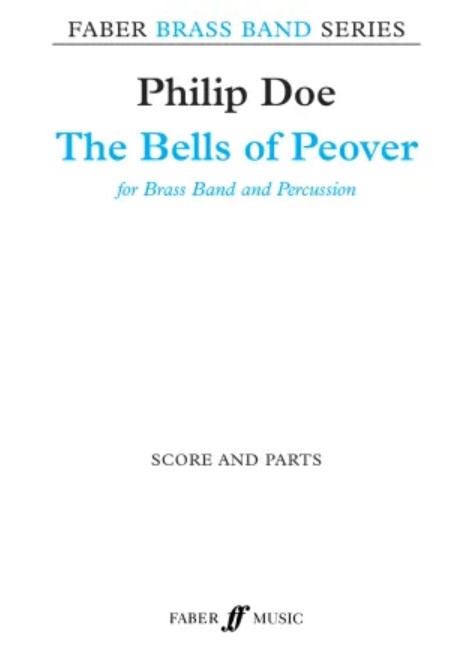 £17.99
£17.99The Bells of Peover (Cornet Solo with Brass Band - Score and Parts) - Doe, Philip
The Bells of Peover is a beautiful and lyrical cornet solo, conjuring up a pastoral scene with the distant ringing of church bells. The piece is named after a pub in the Cheshire village of Lower Peover, near Knutsford. Suitable for Youth/4th Section Bands and above. Duration: 4.00
Estimated dispatch 7-14 working days
-
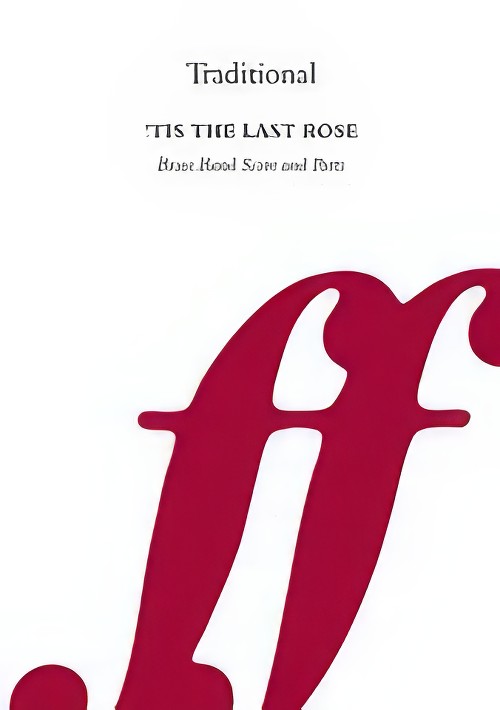 £15.99
£15.99Tis the Last Rose of Summer (Flugel Horn Solo with Brass Band - Score and Parts) - Westwood, Gary
It is often thought that 'Tis the Last Rose of Summer came from the Victorian era, when Irish songs were very popular. However this was first published in 1813 and has been adapted and arranged by many composers and arrangers over the years. This arrangement, as a Flugel Horn solo, by Gary Westwood reveals the tenderness in this wistful love song. Suitable for Advanced Youth/3rd Section Bands and above. Duration: 5.00
Estimated dispatch 7-14 working days
-
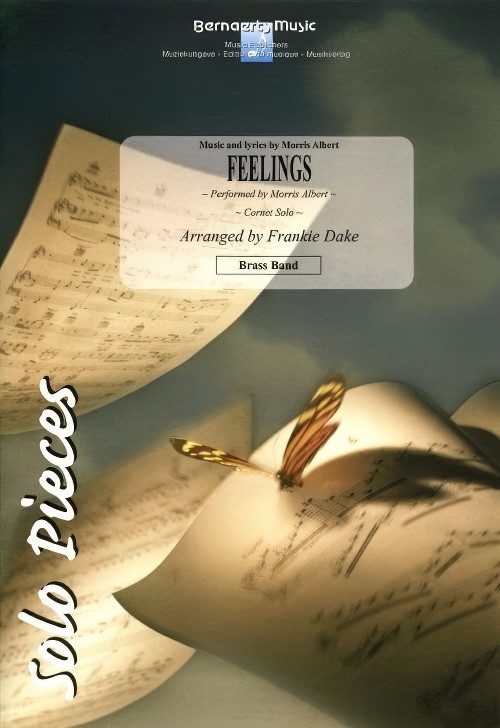 £53.99
£53.99Feelings (Cornet Solo with Brass Band - Score and Parts) - Albert & Gaste - Dake, Frankie
Trumpet, Cornet or Flugelhorn Solo. Performed by Morris Albert. Duration: 04:00
Estimated dispatch 7-14 working days
-
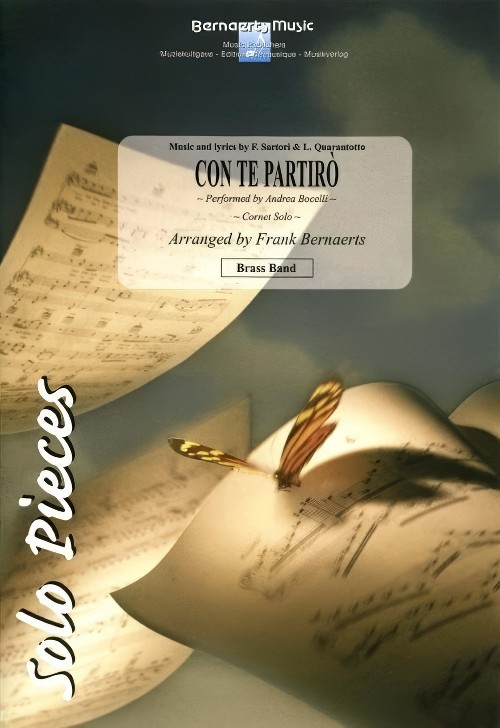 £53.99
£53.99Con Te Partiro (Cornet Solo with Brass Band - Score and Parts) - Quarantotto & Sartori - Bernaerts, Frank
Trumpet, Cornet or Flugel Horn Solo. Performed by Andrea Bocelli. Duration: 04:10
Estimated dispatch 7-14 working days
-
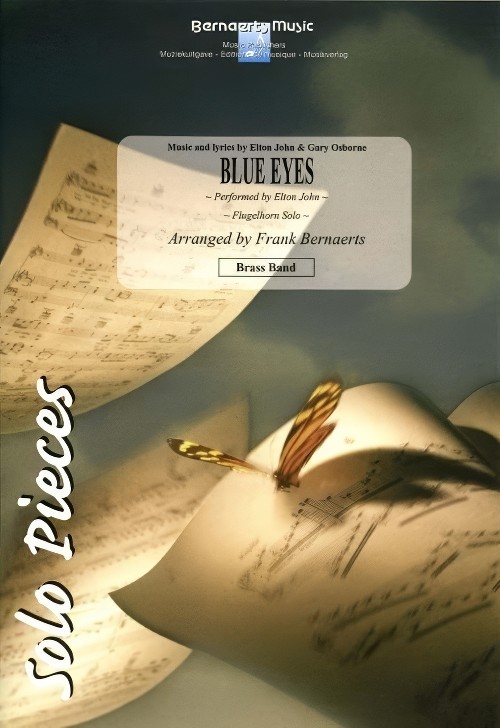 £53.99
£53.99Blue Eyes (Flugel Horn Solo with Brass Band - Score and Parts) - John & Osborne - Bernaerts, Frank
Trumpet, Cornet or Flugel Horn Solo. Performed by Elton John. Duration: 04:10
Estimated dispatch 7-14 working days
-
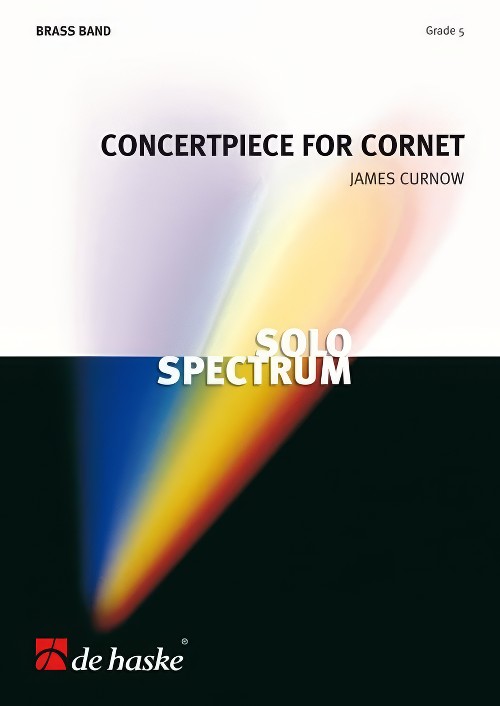 £59.99
£59.99Concertpiece for Cornet (Cornet Solo with Brass Band - Score and Parts) - Curnow, James
Concertpiece for Cornet is a valuable and tremendous addition to the solo repertoire of the instrument. Full of fireworks and technicalities the soloist is also put to the test with an expressive slower melody along with a varied and interesting accompaniment as you would expect from James Curnow. Showcase your cornet soloist with this tremendous concert piece.Duration: 6:30
Estimated dispatch 7-14 working days
